This article was medically reviewed by Adrienne Youdim, MD. Dr. Adrienne Youdim is a Board Certified Internist specializing in medical weight loss and nutrition and founder and creator of Dehl Nutrition - a line of functional nutritional bars and supplements. With 10+ years of experience, Dr. Youdim uses a holistic approach to nutrition that blends lifestyle changes and evidence-based medicine. Dr. Youdim holds a BA from the University of California, Los Angeles (UCLA) and an MD from the University of California, San Diego (UCSD). She completed her residency training and fellowship at Cedars-Sinai. Dr. Youdim holds multiple board certifications awarded by the American Board of Internal Medicine, the National Board of Physician Nutrition Specialists, and the American Board of Obesity Medicine. She is also a Fellow of the American College of Physicians. Dr. Youdim is an Associate Professor of Medicine at UCLA David Geffen School of Medicine and an Assistant Professor of Medicine at Cedars-Sinai Medical Center. She has been featured on CBS News, Fox News, Dr. Oz, National Public Radio, W Magazine, and the Los Angeles Times.
There are 7 references cited in this article, which can be found at the bottom of the page.
This article has been viewed 39,082 times.
Vitamin B12, also known as cobalamin, is very important for energy production in your body. Having a healthy amount of vitamin B12 in your body will allow your nervous system to function normally and effectively.[1] The best way to get enough vitamin B12 is by eating foods that are high in vitamin B12 , but you can also use vitamin B12 supplements. You should also have a good understanding of the benefits of this vitamin so you can take it in good faith.
Steps
Using Vitamin B12 Supplements
-
1Determine your recommended daily allowance for vitamin B12. Every person should consume a certain amount of vitamin B12 every day, starting from birth. The recommended daily allowances for vitamin B12 are:[2]
- 0-6 months: 0.4 mcg
- 7-12 months: 0.5 mcg
- 1-3 years: 0.9 mcg
- 4-8 years: 1.2 mcg
- 9-13 years: 1.8 mcg
- Over 14 years: 2.4 mcg
- Teen girls and women who could become pregnant or who are breastfeeding should consume at least 2.8 mcg of vitamin B12 a day.
-
2Get a diagnosis for vitamin B12 deficiency from your doctor. A lack of vitamin B12 can cause symptoms such as fatigue, a loss of appetite, constipation, and weight loss. However, these symptoms can also be an indication of a different disorder or issue. It’s important that you speak to your doctor and receive an official vitamin B12 deficiency diagnosis before you take vitamin B12 supplements.[3]
- Your doctor may also be able to give you guidance of certain brands or types of vitamin B12 supplements that may be right for you.
- Vitamin B12 supplements can have adverse effects or fail to be effective when taken with certain medications, such as medications to treat acid reflux, GERD, and peptic ulcers. Medication to treat diabetes, like Metformin, can also reduce your body’s ability to absorb vitamin B12. Talk to your doctor or pharmacist before taking vitamin B12 supplements if you are taking any of these medications.
Advertisement -
3Be aware of the two types of vitamin B12 supplements. There are two types of vitamin B12 supplements that you can take, cyanocobalamin and methylcobalamin. Cyanocobalamin is the inactive form of vitamin B12 but it works as well as methylcobalamin, which is the active form of vitamin B12. Most supplements that contain methylcobalamin are more expensive than supplements that contain cyanocobalamin.
- As long as you are not taking any medications that could interact negatively with vitamin B12 supplements, either form of vitamin B12 should be effective.
- Vitamin B12 supplements come in tablets, capsules, and liquid form. There is also a sublingual form that dissolves under your tongue.
-
4Look for vitamin B12 supplements derived from whole foods. When buying vitamin B12 supplements from health food stores or in the vitamin aisle of your local pharmacy, you should look for information on the label confirming the supplement is derived from whole foods. Though vitamins derived from whole foods may be more expensive, this will ensure the vitamin is of the highest quality.
- Keep in mind vitamin supplements are not strictly regulated by the Federal Drug Association (FDA) and are only loosely regulated under the Dietary Supplement Health and Education Act of 1994 (DSHEA). It is the responsibility of the manufacturers to test the safety of their products and to label their products properly.
-
5Check the label for independent seals of approval. Many supplements use independent labs to test their products and receive seals of approval for their quality. Look on the label of the supplements from seals of approval from Consumer Labs, the Natural Products Association (NPA), LabDoor, and the United States Pharmacopeia.
- You can also go directly to the websites of any of these independent labels to see if the manufacturer of the supplement is listed with seals of approval. However, if the supplement does not have any seals of approval, this does not necessarily mean the product is faulty. Getting checked and approved by an independent lab is completely voluntary for supplement manufacturers.
-
6Look for vitamin B12 supplements that contain folate, not folic acid. Folate is vitamin B12 that is naturally found in many foods, but folic acid is the synthetic form of folate and should be avoided.
- Taking supplements with folic acid can actually hide a vitamin B12 deficiency, if you have one. Consuming too much folic acid can also increase your risk of certain cancers.
Eating Foods that Contain Vitamin B12
-
1Consume more fish and beef. Fish such as trout, salmon, tuna, and haddock all contain high levels of vitamin B12. Clams are also naturally high in vitamin B12. As well, beef products, including beef liver, are high in vitamin B12. Try to add more fish and beef to your diet by having at least one serving a day.[4]
-
2
-
3Consider taking vitamin B12 supplements if you are a vegetarian or a vegan. Vitamin B12 is not found at high levels in plant foods, so individuals with a plant based diet should make sure they are having more food sources of Vitamin B12. Vegetarians and vegans should consider taking vitamin B12 supplements to avoid developing a vitamin B12 deficiency.[7] [8]
Understanding the Benefits of Vitamin B12
-
1Reduce your chances of developing anemia by taking vitamin B12. B12 is necessary for your body to produce enough hemoglobin. If you develop a vitamin B12 deficiency, you may also develop a form of anemia called megaloblastic anemia. Once you have this form of anemia, you can experience symptoms like fatigue, loss of appetite, weight loss, and constipation.[9]
- You may also experience tingling or numbness in your hands and feet, balance issues, soreness of the mouth or tongue, and depression. Taking vitamin B12 supplements and having more vitamin B12 high foods can help to prevent the development of anemia.
-
2Avoid birth defects by taking vitamin B12 while pregnant. If you are an expectant mother, you should make sure you are taking vitamin B12 supplements and eating vitamin B12 rich foods while pregnant and while breastfeeding. This can reduce the likelihood of birth defects in your baby, such as neural tube defects, movement disorders, developmental delays, and megaloblastic anemia.[10]
-
3Protect yourself from heart disease by taking vitamin B12. Vitamin B12 has been shown to help reduce the chances of developing heart disease, cancer, Alzheimer's disease, depression, and osteoporosis.[11]
- Taking vitamin B12, as well as folate and vitamin B6, can lower the level of homocysteine in your system, which is a substance that acts as a biomarker for heart disease. Though taking vitamin B12 cannot prevent heart disease, it can significantly reduce your chances of developing it.
References
- ↑ http://lpi.oregonstate.edu/mic/vitamins/vitamin-B12
- ↑ https://ods.od.nih.gov/factsheets/VitaminB12-HealthProfessional/
- ↑ https://www.nhs.uk/conditions/vitamin-b12-or-folate-deficiency-anaemia/
- ↑ https://ods.od.nih.gov/factsheets/VitaminB12-HealthProfessional/
- ↑ https://ods.od.nih.gov/factsheets/VitaminB12-HealthProfessional/
- ↑ Adrienne Youdim, MD. Board Certified Internist. Expert Interview. 11 September 2020.
- ↑ https://ods.od.nih.gov/factsheets/VitaminB12-HealthProfessional/
- ↑ Adrienne Youdim, MD. Board Certified Internist. Expert Interview. 11 September 2020.
- ↑ https://lpi.oregonstate.edu/mic/vitamins/vitamin-B12
- ↑ https://www.hsph.harvard.edu/nutritionsource/vitamin-b12/
- ↑ Lowering blood homocysteine with folic acid based supplements: meta-analysis of randomised trials. Homocysteine Lowering Trialists' Collaboration. BMJ. 1998;316(7135):894-898.
About This Article
To take vitamin B12, take 2.4 mcg a day if you're over the age of 14. Just make sure you talk to your doctor first so they can determine if you have a vitamin B12 deficiency. Your doctor can also make sure you're not taking any medications that could interact negatively with vitamin B12 supplements. Also, when you're choosing a vitamin B12 supplement, look for one that contains folate instead of folic acid since too much folic acid is bad for you. For more advice from our Medical co-author, like how to get vitamin B12 through your diet, scroll down!
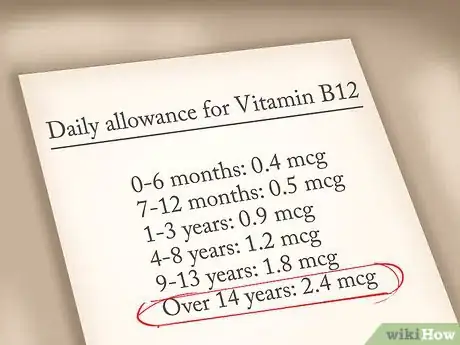


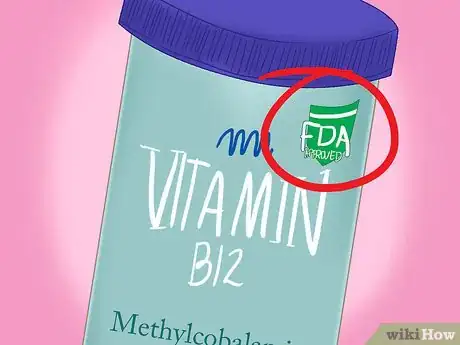
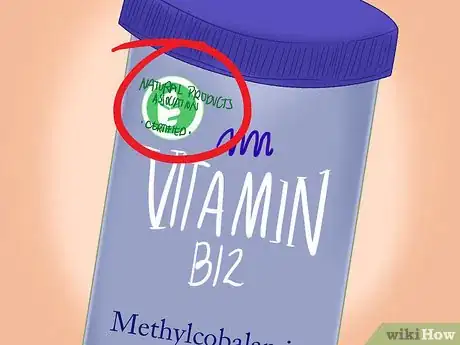
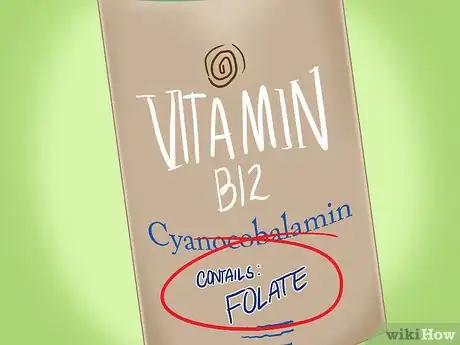





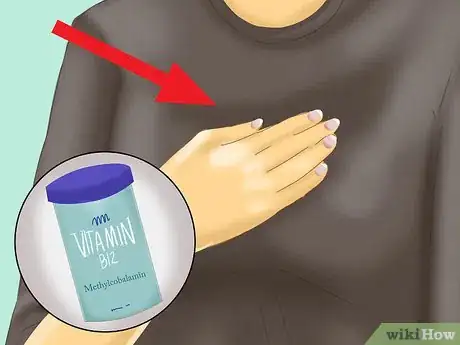

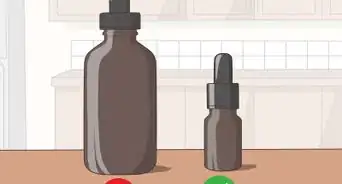

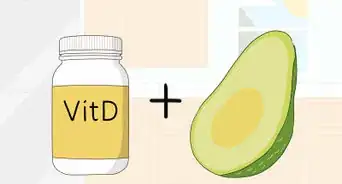




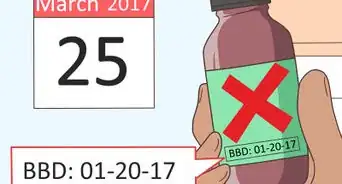


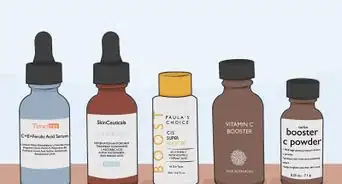







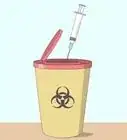


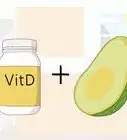



































Medical Disclaimer
The content of this article is not intended to be a substitute for professional medical advice, examination, diagnosis, or treatment. You should always contact your doctor or other qualified healthcare professional before starting, changing, or stopping any kind of health treatment.
Read More...